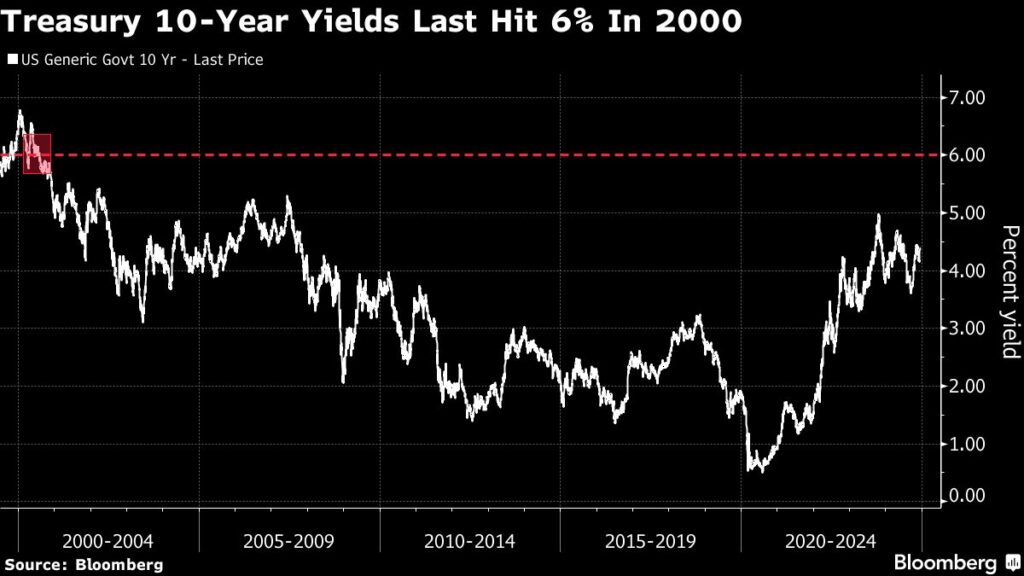(Bloomberg) — Treasury 10-year yields (^TNX) may climb to 6% for the first time in more than two decades as US fiscal woes worsen and Donald Trump’s policies help keep inflation elevated, according to T. Rowe Price.
Most Read from Bloomberg
The benchmark yield may first reach 5% in the first quarter of 2025 before potentially climbing further, Arif Husain, chief investment officer of fixed-income, wrote in a report. Husain is doubling down on calls for higher yields, citing persistent US budget deficits as Trump cuts taxes during his second presidency, as well as potential tariffs and immigration policies that would sustain price pressures.
“Is a 6% 10‑year Treasury yield possible? Why not? But we can consider that when we move through 5%,” wrote Husain, who helps the money manager oversee $187 billion. “The transition period in US politics is an opportunity to position for increasing longer‑term Treasury yields and a steeper yield curve.”
The outlook for Treasuries has grown increasingly bleak as traders brace for Trump’s proposed policies to stoke inflation and increase the fiscal strain on Washington. Investors will scour the Federal Reserve’s policy statement on Wednesday to gauge how much further interest rates may fall after the US central bank delivers an expected quarter-point cut this week.
The 10-year Treasury yield, which influences the pricing of everything from corporate debt to mortgages, was little changed at 4.40% in Asia trading Tuesday. It climbed to as high as 4.74% earlier this year and last hit 6% in 2000.
Husain’s vision for a 6% yield appears even more bearish than some of his peers. ING Groep NV said the 10-year yield may test 5% to 5.5% next year, while Franklin Templeton and JPMorgan Asset Management said 5% was possible.
In the firm’s 2022 midyear market outlook Husain said yields would continue rising over the medium term, suggesting investors should consider adding bond exposure “over the next several quarters.”
Falling global demand for Treasuries also bodes ill for their outlook, according to Husain. Japan, the largest foreign holder of US sovereign debt, sold a record $61.9 billion of the securities in the third quarter. China, another major owner, offloaded $51.3 billion in the same period, the second largest sum in its own history.
“Anecdotally, Treasuries have become more volatile than other high‑quality developed market government bonds — and even some emerging market sovereigns — potentially steering some investors away,” wrote Husain, a near three-decade market veteran.
